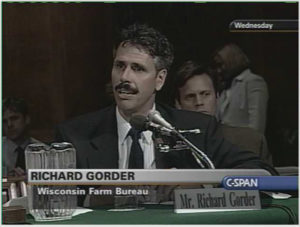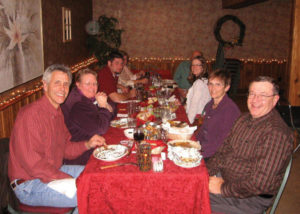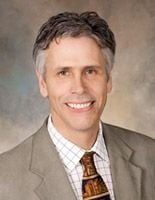As Wisconsin Farm Bureau celebrates its centennial, a new era is also in store for me. In December, I’m retiring from the WFBF Board of Directors.
Beginning in December of this year, WFBF will begin a year-long celebration, remembering the past and planning for the future. It seems only logical to usher in the next century with a new state board member who will bring new ideas and a renewed hunger and passion for agriculture. I am pleased and excited to see the next generation ready to take the next step in leading our organization as we kick-off our centennial.
My only wish for the next director from District 3, is that he or she finds the experience as worthwhile and rewarding as I have. I literally have been to every corner of this country and parts of the world representing Farm Bureau. It truly has been a privilege and honor.
Like life, there have been some high points and some challenges, but the most gratifying moments were turning the challenges into high points. There has never been a lack of issues for our organization to address. When you think you have solved one problem another issue of equal or greater importance emerges; it’s a lot like farming.
I’ve spent 40 years farming and 21 of those on the WFBF Board of Directors. It’s safe to say, the more things change, the more they stay the same.
 For example, nonpoint pollution rules and regulations have become part of our regular farming practices. Words like Karst, RUSLE 2, PI or Phosphorus Index, 590, NR151 and ACTP50 have become part of our vocabulary. I can’t remember, nor do I wish to remember how many meetings I’ve attended to make sure nonpoint rules and regulations worked on the farm.
For example, nonpoint pollution rules and regulations have become part of our regular farming practices. Words like Karst, RUSLE 2, PI or Phosphorus Index, 590, NR151 and ACTP50 have become part of our vocabulary. I can’t remember, nor do I wish to remember how many meetings I’ve attended to make sure nonpoint rules and regulations worked on the farm.
I’ve always tried to work towards common sense solutions that would address the resource concern while trying to maintain practical and cost-effective practices. I wish I could say we can put this issue to bed, but the nonpoint issue continues to evolve, becoming more restrictive and costlier to comply.
Dairy has been the other focus of mine while serving on the Board of Directors. I’ve talked with dairy farmers, university personnel, trade officials, embassy diplomats and legislators. My travels have taken me from Australia to Germany, and to Washington, D.C., to testify before U.S. Senate Agriculture and Judiciary Committees.
Today, in Wisconsin, we have less than 25 percent of the dairy farms we had when I started farming, and yet we are producing more milk than ever. What has changed is who is milking the cows and the impressive amount of milk products being exported. I don’t have the answers to the dairy downturn, but I do know we have to adapt to the paradigm shift between farmers and processors.
I’ve been to places I never dreamed of going and I’ve met people I never would have met if it weren’t for my involvement with Farm Bureau. I didn’t plan any of this, but it’s been a glorious trip.
I’m neither a Pollyanna nor a demagogue, but we must continue to be a part of the dialogue. And honestly, seeing our next generation of leaders, I’m confident about the future of our organization as well as agriculture.
Congratulations Wisconsin Farm Bureau on 100 years. Thanks for letting me be a part of your history. With tears in my eyes … thank you all.
Richard Gorder
 Richard Gorder is the District 3 Representative on WFBF’s Board of Directors. He represents Crawford,Grant, Iowa, Lafayette, Richland and Vernon counties. Richard farms with his wife, Cindy, on a 200-acre, 60-cow dairy farm east of Mineral Point in Iowa County.
Richard Gorder is the District 3 Representative on WFBF’s Board of Directors. He represents Crawford,Grant, Iowa, Lafayette, Richland and Vernon counties. Richard farms with his wife, Cindy, on a 200-acre, 60-cow dairy farm east of Mineral Point in Iowa County.


Leave a Reply